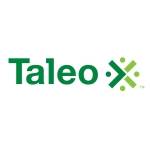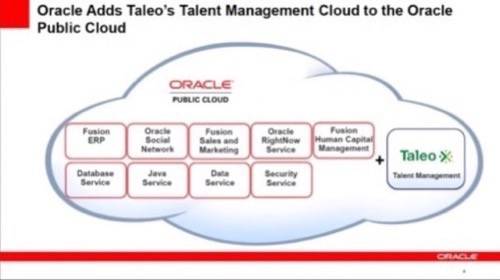In the 20th century, corporations recruited talented professionals but then nurtured them and integrated them into their organizations. Talent was part of their business foundations. In the more intricate economy of the 21st, talent is something perceived to be possessed by individuals. Corporations recruit these people, and then undertake what’s called compensation management in an effort to retain them as long as possible, and to let go of talent that doesn’t perform up to scale.

The value of a single, global database for evaluating the dollar value of individual talent on a real-time scale was affirmed today in a very big way, with the announcement of Oracle’s intention to acquire cloud-based talent management system Taleo.
Taleo’s database has been perceived as the mother lode of talent evaluation. It brings in information from professionals (perhaps including yourself) looking to expand or even change their careers. That information is then shared with recruiters who use Taleo’s service to match qualified, skilled workers with the right position, for the right compensation.
But that process generates a new tier of input, enabling human resources managers to track personal performance across an entire organization. This process has grown just in recent months to an unanticipated scale, introducing HR personnel to an analytics-based system for talent and compensation management that works not unlike Web publishing – bringing freelancers on-board, tracking their traffic and revenue generation on an hourly basis, and dispensing with low performers.
Taleo calls this system pay-for-performance, and it’s converting the talent management structure of large enterprises into something like the NFL.
As a brochure for Taleo’s popular Compensation tool reads (PDF available here), “Many companies have found that they can save millions by increasing the accuracy of their compensation calculations. Taleo Compensation’s ability to dynamically update budgets when employees leave or change departments has paid for their compensation projects several times over. Other solutions require customers to do considerable data manipulation before uploading compensation data into the solution, which increases costs and delays changes to compensation policies… Taleo Compensation enables companies to focus the right pay on the right people with a unique, rules driven approach that replaces customization with configuration.”
Taleo gives HR managers a cloud-based dashboard whose design and operation appear directly inspired by data center management tools for IT administrators.
In perhaps the most contemporary of ironies, financial analysts recently perceived Taleo as growing too big for its britches – as having built a product that was too big for its own executives to keep a handle on. Last December, in the wake of SAP’s acquisition of talent management competitor SuccessFactors, and in a process that could conservatively be described as “blatant,” Taleo made available its CEO, Mike Gregoire, for an interview with AllThingsD. In that interview, he praised Oracle for its expertise in acquiring the right companies (citing RightNow as one example), and stopped just short of hiring an auctioneer and setting a minimum bid price.
“The No. 1 expense in businesses is people,” Gregoire told Arik Hesseldahl. “We see the news about the unemployment rates, and then we see that companies can’t hit their productivity goals because they don’t have the right people in the right jobs. It’s absolutely crazy. That’s the problem we solve. Talent management is about getting the right people into your company, having them work on the right things, because you’ve got performance goals, measuring those goals, tying that to pay-for-performance and compensation. And, by the way, the chances that person has the right skills at the right time is about zero, so you want to tie those goals to a learning management system, and making that happen in real time, and then providing intelligence about the whole ecosystem of employees. That moves the needle with respect to business performance.”
That learning management system Gregoire referred to was Learn.com, which Taleo acquired in 2010. Just a few quarters thereafter, Taleo’s positive cash flow increased by a factor of six. It was an indication that while talent management was Taleo’s selling factor, talent nurturing is in much higher demand among a workforce desperate to cultivate new skills in a more volatile economy.

In a presentation to investors this morning, Oracle’s depiction of adding Taleo to its talent pool looks less like a nurturing process and more like something out of an ’80s video game.
“Taleo’s cloud manages 15% of all US hires and is one of the world’s largest cloud deployments with nearly 16 billion transactions per year,” Oracle’s statement to investors reads. “Together, Oracle and Taleo expect to create a comprehensive cloud offering for organizations to manage their Human Resource operations and employee careers. The combination is expected to empower employees and managers to effectively manage careers throughout their entire employment, enable organizations to retain talent and optimize costs, and improve the employee experience through faster on boarding and better collaboration with team members via social media.”

















